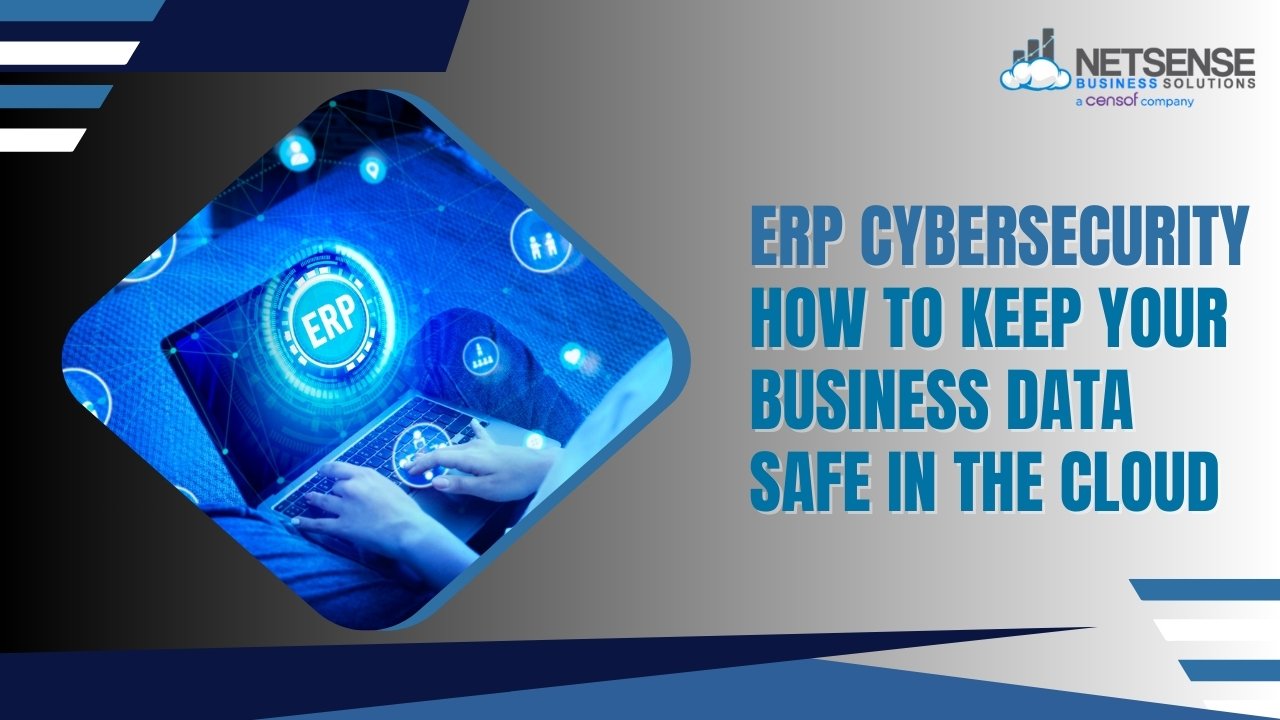In today’s digitally first world, companies in Malaysia and around the world are rapidly using cloud-based ERP systems to boost productivity, optimize workflows, and gain real-time insights.
The cloud offers flexibility and scalability, but it also raises cybersecurity concerns, which are among the top concerns for decision-makers.
Because cyberattacks are growing more sophisticated, protecting your ERP data on the cloud is becoming a top responsibility for your company.
This article looks at ERP cybersecurity best practices to ensure that your company’s data is safe, compliant, and resilient to evolving threats.
Why ERP Cybersecurity Matters
Your ERP system is the digital cornerstone of your business. It creates a centralized platform that integrates supply chain, finance, human resources, customer data, and more. This suggests that if your ERP is compromised, everything from payroll and inventory to customer records is at risk.
Cybercriminals are concentrating more on cloud ERP systems because they contain valuable and sensitive data. A single breach could result in:
- Financial loss from fraud or downtime
- Reputational damage that weakens customer trust
- Regulatory penalties for non-compliance with data protection laws
- Operational disruptions that affect productivity and revenue
Common Cybersecurity Threats in Cloud ERP
The first step in protecting your business is to identify potential risks, like:
- One of the biggest issues is phishing attempts that target employees with fake login requests.
- Important ERP data is locked down by ransomware until a ransom is paid.
- Unapproved access caused by a lack of multi-factor authentication or weak passwords.
- Data leaks resulting from third-party integrations or incorrectly configured cloud storage.
Best Practices to Secure ERP in the Cloud
Here are proven strategies to strengthen your ERP cybersecurity posture:
Enforce Strong Authentication
Implement multi-factor authentication (MFA) for all ERP users. This adds an extra layer of protection even if passwords are stolen.
Regular Security Updates and Patching
Ensure your ERP software is always up to date. Cloud-based ERP providers like Netsense deliver regular security patches to close vulnerabilities before they can be exploited.
Role-Based Access Control
Not every employee needs access to all ERP data. Limit user privileges with role-based access control (RBAC) to reduce the risk of insider threats and accidental misuse.
Encrypt Data at Rest and in Transit
Encryption ensures that even if data is intercepted or stolen, it cannot be read without the correct decryption key. Always check that your cloud ERP provider offers end-to-end encryption.
Continuous Monitoring and Threat Detection
Leverage AI-powered monitoring tools to detect unusual activities, such as unauthorised logins or data downloads. Proactive monitoring helps you respond to threats in real time.
Regular Backups and Disaster Recovery
Secure, automated backups ensure your business can quickly recover from ransomware or system failures. A robust disaster recovery plan is critical for maintaining business continuity.
Staff Education on Cybersecurity
Human error is often the weakest link. Regular cyber hygiene training for staff members should cover topics like identifying phishing emails and using secure login techniques.
Choosing a Secure Cloud ERP Partner
When moving your ERP to the cloud, it’s vital to work with a trusted partner who prioritises data security and compliance. At Netsense, we provide cloud ERP solutions that integrate advanced cybersecurity measures to safeguard your sensitive business data.
Our ERP solutions offer:
- End-to-end data encryption
- Compliance with international security standards
- Built-in threat detection and monitoring tools
- Scalable security to grow with your business
Final Thoughts
Although the cloud has revolutionized company operations, it has also increased the scope of cybersecurity threats. More than just technology is at stake when it comes to protecting your ERP system; your entire company is at stake.
You can protect your data, gain the trust of your clients, and concentrate on expanding your company without having to worry about cyber risks by putting the proper strategies into place and working with a secure cloud ERP provider like Netsense.
